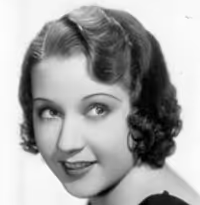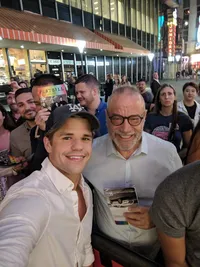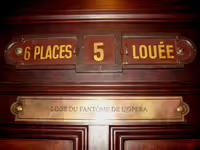Unpopular theatre opinions
Alex Kulak2
Broadway Legend Joined: 9/11/16
#100Unpopular theatre opinions
Posted: 6/18/20 at 4:27pm
The production I saw had a lot of issues (poor sound design, bland direction, iffy performances), but even if all that was flawless, the show is fundamentally broken.
A good 40% of the show is in unsubtitled Italian, and almost impossible to follow when watching on stage. I think the writers thought it would be like opera, where the performances would be enough to carry across the emotion of the scene, but it really wasn't. If they're going for a deep naturalism (a kind of linguistic loneliness, a la Lost In Translation), but then they completely throw that out the window when Fabrizio's mother breaks immersion and speaks English because "I have to tell you what's going on" (and totally not because Craig Lucas couldn't figure out how to put an English-speaker in the scene).
I really dislike Adam Guettel's score (not just in this, in Floyd Collins too). I get that it can't be expected for an American lyricist to write brilliant lyrics in Italian, but why are the English lyrics just as crummy?
Giuseppe asks "Was she sweet as she looks?"
And Franca also wants to know
In her own special way
Not only does this lyric not scan very well in the music, but it doesn't have anything to do with the characterizations of Giuseppe and Franca leading up to that moment.
The music is entirely atonal, and not in a good way. It feels like Adam Guettel wanted it to sound grand and symphonic, but also neurotic and complicated, but he didn't realize those two extremes are near-incongruous.
The few songs that do sound pleasant to the ear are completely out of place, like the title song for instance. The music completely betrays the scene that just took place. Clara was slapped by her mother, the only person who has protected her all her life has assaulted her and forbid her from seeing her lover, and she sings a major-key, flowy, Disney Princess song. I heard the opening of it, and half-expected Clara to start singing "I wanna be where the people are..."
Ignoring all of that, the thing that makes this show fundamentally broken is the plot. The resolution to this romantic musical's plot is a woman allowing a near-total stranger to rape her mentally disabled daughter. I know some people try to rationalize this by saying the show's plot is really about Margaret coming to terms with how her daughter is capable enough to understand love and marriage, but that is not what is in the text of the play. The script, lyrics, and multiple stagings of it make it very clear that Clara is around the mental age of twelve, and the plot of the show is Margaret not agreeing with her husband on how dangerously irresponsible that is, but instead walking encouraging Clara (again, her child-minded daughter) to enter a sexual relationship with a 20-year-old man she met a week ago.
If you like it, that's totally fine, but my college did that show a couple years ago, and it just infuriated me beyond belief when I saw it.
#101Unpopular theatre opinions
Posted: 6/18/20 at 5:20pm
Wow, Alex, I don't know what the "popular opinion" is, but I could not disagree more, re: LIGHT or FLOYD. Your objections to the plot might be entirely fair in the real world, but I'm not sure musical characters (or tragic or comic characters) are meant to be evaluated so literally.
You remind me of the bitter complaints that Evan Hansen isn't punished "enough".
I find Clara's disability vague enough in the show that I don't approach her situation so clinically. Might we not also complain that Maria Rainer--though not mentally impaired--hardly has the experience necessary to make a lifelong commitment to a man twice her age after only the experience of a convent and a brief stint as a nanny? How dare that old man take advantage of her like that!
(You also make it sound as if the mother pushes Clara into marriage, when my memory of the show is merely that she withdraws her objection; but that hardly seems worth a quarrel.)
Anyhow, agree to disagree and all that. I don't mean to dismiss your opinion; I'm just expressing my surprise.
#102Unpopular theatre opinions
Posted: 6/18/20 at 5:26pm
soulmistin said: "
Joey Ledonio, I'd appreciate it if you could go one day without finding one of my comments and saying I have "white fragility" or I'm a white supremacist because I happen to dislike something a black person was involved in. Get a life."
Here, here!
And while you are schooling Mr. Ledonio, please explain that it is rude for him to PM me when he have his own logon set to prevent me from replying. (For the record, Mr. L's two PMs have been surprisingly pleasant, given the invective he has directed toward me in public posts.)
Ledonio is now the second BWW poster who has done this to me and I resent it (even though, as I said, his PMs were perfectly civil).
Alex Kulak2
Broadway Legend Joined: 9/11/16
#103Unpopular theatre opinions
Posted: 6/18/20 at 11:30pm
GavestonPS said: "(You also make it sound as if the mother pushes Clara into marriage, when my memory of the show is merely that she withdraws her objection;but that hardly seems worth a quarrel.)"
At the very end of the show, right before Margaret's last song, Clara has cold feet, and Margaret encourages her.
I can understand where you're coming from regarding how musical theatre characters aren't supposed to be interpreted so literally. What I gathered from the show is that the authors are asking you to take the story and characters more literally than usual, by the immersive aspect of the Italian language and the darker subject matter.
Comparing it to Dear Evan Hansen, the argument that he isn't punished enough is flawed because his punishment fits the conflict in the show: his opening up to other people was built on a lie, and he lost all the progress he made when the lie was revealed.
With Light in the Piazza, Clara is doomed to live as a child in an adult woman's body, unable to fully understand the feelings she has for Fabrizio. The conflict is that in the reality of the story, she probably isn't prepared for marriage and a family, no matter how badly she wants it. The resolution is that... she just does it anyway, and the show ends before we see any real consequences. It just felt like sloppy storytelling.
Again, usually I agree with you on how you're aren't supposed to take musical characters as completely literal. It's said that plays are understood through your brain, but musicals are understood through your heart. The problem (and it may have just been with the production I saw) was that Fabrizio and Clara didn't have much chemistry. If I'm not invested in the love story, I have nothing to do but start applying reasons to the plot.
Unknown User
Joined: 12/31/69
#104Unpopular theatre opinions
Posted: 6/19/20 at 11:45am
DiscoCrows said: "Interesting take by Eva Noblezada... just gonna leave this here.
https://twitter.com/evanoblezada/status/1273494857231851520?s=21
I didn’t hate Reeve in HT, I thought he was fine. Not particularly Tony-nomination worthy considering who he was up against but... fine. I don’t know how “unpopular” of an opinion that is though, it seems like most people on these boards were far less fond of his performance than stan twitter was."
very unpopular opinion but I thought eva was the weakest part of Hadestown. Her voice is gorgeous and she is so talented, but maybe it’s just her character that I found to be the weakest? I don’t know.
#105Unpopular theatre opinions
Posted: 6/19/20 at 12:08pm
Hairspray's pastiche of doo-wop and motown is not very good.
Alex Kulak2
Broadway Legend Joined: 9/11/16
#106Unpopular theatre opinions
Posted: 6/19/20 at 12:22pmI agree. I just discovered Cry-Baby, and I like it so much more than Hairspray. Not only are the songs better written, but the pastiche of rockabilly music is much better
#107Unpopular theatre opinions
Posted: 6/19/20 at 2:33pm
Alex Kulak2 said: "The production I saw had a lot of issues (poor sound design, bland direction, iffy performances), but even if all that was flawless, the show is fundamentally broken.
A good 40% of the show is in unsubtitled Italian, and almost impossible to follow when watching on stage. I think the writersthought it would be like opera, where the performances would be enough to carry across the emotion of the scene, but it really wasn't. If they're going for a deep naturalism (a kind of linguistic loneliness, a laLost In Translation), but then they completely throw that out the window when Fabrizio's mother breaks immersion and speaks English because "I have to tell you what's going on" (and totally not because Craig Lucas couldn't figure out how to put an English-speaker in the scene).
I really dislike Adam Guettel's score(not just in this, in Floyd Collins too). I get that it can't be expected for an American lyricist to write brilliant lyrics in Italian, but why are the English lyrics just as crummy?
Giuseppe asks "Was she sweet as she looks?"
And Franca also wants to know
In her own special way
Not only does this lyric not scan very well in the music, but it doesn't have anything to do with the characterizations of Giuseppe and Franca leading up to that moment.
The music is entirely atonal, and not in a good way. It feels like Adam Guettel wanted itto sound grand and symphonic, but also neurotic and complicated, but he didn't realize those two extremes are near-incongruous.
The few songs that do sound pleasant to the ear are completely out of place, like the title song for instance. The music completely betrays the scene that just took place. Clara was slapped by her mother, the only person who has protected her all her life has assaulted her and forbid her from seeing her lover, and she sings a major-key, flowy, Disney Princess song. I heard the opening of it, and half-expected Clara to start singing "I wanna be where the people are..."
Ignoring all of that, the thing that makes this show fundamentally broken is the plot. Theresolutionto this romantic musical's plot is a woman allowing a near-total stranger to rape her mentally disabled daughter. I know some people try to rationalize this by saying the show's plot is really about Margaret coming to terms with how her daughter is capable enough to understand love and marriage, but that is not what is in the text of the play. The script, lyrics, and multiple stagings of it make it very clear that Clara is around the mental age of twelve, and the plot of the show is Margaret not agreeing with her husband on how dangerously irresponsible that is, but instead walking encouraging Clara (again, herchild-mindeddaughter) to enter a sexual relationship with a 20-year-old man she met a week ago.
If you like it, that's totally fine, but my college did that show a couple years ago, and it just infuriated me beyond belief when I saw it."
I have never read comments on this show that I agree with more. I think Guettel is getting Sondhiem-cred. Because for years everyone said Sondheim's shows were "tuneless" and now enough of the larger audience has woken up to the fact that they aren't, people are afraid to criticize any show that challenges them, even when the score is genuinely awful.
Can't speak to the book, as I only know the show by its recording. But your arguments strike me as sound, and I agree with your later response as to why this isn't the same as complaining Evan Hanson isn't punished enough (which was always a frustrating criticism--I don't like the show, and I still recognize that that argument is absurd).
windowwaving
Stand-by Joined: 12/14/19
#108Unpopular theatre opinions
Posted: 6/19/20 at 3:50pm
AlexxGee said: "very unpopular opinion but I thought eva was the weakest part of Hadestown. Her voice is gorgeous and she is so talented, but maybe it’s just her character that I found to be the weakest?I don’t know."
I also felt that way after leaving Hadestown. I was very excited to see Eva and her voice is pure perfection, but after the show, I felt no impact from her character. I'm not sure if it's how the character is written/directed, and I have no doubt she puts her heart and soul to it, but I wonder if it's because the other characters are a little more over-the-top and she's kind of the most "normal."
#109Unpopular theatre opinions
Posted: 6/19/20 at 3:58pm
Re: Evan not being "punished enough", I get where that's coming from, because the show basically elides everything after he reveals the truth and then a year later Zoe is just like "actually you made things better!". It's not that Evan needs to be "more punished", but the show functionally skips the actual emotional reckoning that it feels like it's building towards in favor of a faux-uplifting ending about smiling and being nice. There's a big dramatic gap there and the effect is that it feels like not enough happens as a result of the preceding two hours.
Joshua Rosenthal
Stand-by Joined: 8/13/17
#110Unpopular theatre opinions
Posted: 6/19/20 at 6:47pmAnother one: I don’t think Ben Platt should play Evan Hansen again in the movie. He’s very talented but too old. ESPECIALLY with facial hair where he then looks more his age. I suppose he looks younger without it but even then, still. I feel like having someone closer to a teen than they are to being 30, or better yet, an actual *gasp* TEEN play the part. Someone who resembles a teen
#111Unpopular theatre opinions
Posted: 6/19/20 at 6:57pm
He's 26, young looking, and his Dad is producing. He is going to play Evan whether anyone likes it or not.
#112Unpopular theatre opinions
Posted: 6/19/20 at 11:08pm
Charley Kringas Inc said: "Re: Evan not being "punished enough", I get where that's coming from, because the show basically elides everything after he reveals the truth and then a year later Zoe is just like "actually you made things better!". It's not that Evan needs to be "more punished", but the show functionally skips the actual emotional reckoning that it feels like it's building towards in favor of a faux-uplifting ending about smiling and being nice. There's a big dramatic gap there and the effect is that it feels like not enough happens as a result of the preceding two hours."
The goal of the show is to help an audience empathize with someone who is suffering so terribly that he would take an extreme course of action in an attempt to curb that suffering. There's really not much "punishment" Evan could receive beyond what he does receive--estrangement from the surrogate family that finally made him feel he belonged somewhere. That a year later, Zoe is willing to say something kind to him isn't wrong, either and isn't necessarily false. Good things can spring from bad deeds. Her brother is remembered in a positive way, now, and his name will live on in relation to the park. Those are good things. As the show is fundamentally on Evan's side, there's nothing wrong with ending on an up-note for him.
#113Unpopular theatre opinions
Posted: 6/19/20 at 11:34pm
Charley Kringas Inc said: "Re: Evan not being "punished enough", I get where that's coming from, because the show basically elides everything after he reveals the truth and then a year later Zoe is just like "actually you made things better!". It's not that Evan needs to be "more punished", but the show functionally skips the actual emotional reckoning that it feels like it's building towards in favor of a faux-uplifting ending about smiling and being nice. There's a big dramatic gap there and the effect is that it feels like not enough happens as a result of the preceding two hours."
That makes sense, though I can't say it bothered me when I finally saw the show. (By that time I had read endless arguments here, so I wasn't surprised by anything in the dramaturgy.)
Re LIGHT IN THE PIAZZA, I am surprised that Alex and Joe agree about the music, which I find glorious (especially when sung by Clark and O'Hara). (It does indeed remind me of Sondheim ONLY in the way I had to listen to PIAZZA and FLOYD a couple of times to educate my ear, just as I did with ANYONE CAN WHISTLE and the "book score" of FOLLIES. Didn't stop me from loving FOLLIES or PIAZZA, but I didn't fully appreciate the scores at first hearing.)
As for the plot, I thought we had decided as a society that people with mental disabilities have the right to choose partners, even have children, and live with the consequences of their own mistakes. Half the population is and always will be "below average" intellectually, but we don't hold them to the prerequisites for marriage that Alex would apply to Clara--in this discussion. (I'm not for a moment suggesting Alex or Joe favors any of the ugly business associated with the way we treated the disabled before 1970! Please know I am trying to make that as clear as can be!)
But if Alex's Clara and Fabrizio had no chemistry, I can understand why he might question the suitability of their union.
#114Unpopular theatre opinions
Posted: 6/20/20 at 12:04am
GavestonPS said: "Charley Kringas Inc said: "Re: Evan not being "punished enough", I get where that's coming from, because the show basically elides everything after he reveals the truth and then a year later Zoe is just like "actually you made things better!". It's not that Evan needs to be "more punished", but the show functionally skips the actual emotional reckoning that it feels like it's building towards in favor of a faux-uplifting ending about smiling and being nice. There's a big dramatic gap there and the effect is that it feels like not enough happens as a result of the preceding two hours."
That makes sense, though I can't say it bothered me when I finally saw the show. (By that time I had read endless arguments here, so I wasn't surprised by anything in the dramaturgy.)
Re LIGHT IN THE PIAZZA, I am surprised that Alexand Joe agree about the music, which I find glorious (especially when sung by Clark and O'Hara). (It does indeed remind me of Sondheim ONLY in the way I had to listen to PIAZZA and FLOYD a coupleof times to educate my ear, just as I did with ANYONE CAN WHISTLE and the "book score" of FOLLIES. Didn't stop me from loving FOLLIES or PIAZZA, but I didn't fully appreciate the scores at first hearing.)
As for the plot, I thought we had decided as a society that people with mental disabilities have the right to choose partners, even have children, and live with the consequences of their own mistakes.Half the population is and always will be "below average" intellectually, but we don't hold them to the prerequisites for marriage that Alex would apply to Clara--in this discussion. (I'm not for a moment suggesting Alex or Joe favors any of the ugly business associated with the way we treated the disabled before 1970! Please know I am trying to make that as clear as can be!)
But if Alex'sClara and Fabrizio had no chemistry, I can understand why he might question the suitability of their union."
Damn it, if you think it's glorious, I'm going to have to give it another listen. Where's my CD...
#115Unpopular theatre opinions
Posted: 6/20/20 at 12:15am
joevitus said: "GavestonPS said: "Charley Kringas Inc said: "Re: Evan not being "punished enough", I get where that's coming from, because the show basically elides everything after he reveals the truth and then a year later Zoe is just like "actually you made things better!". It's not that Evan needs to be "more punished", but the show functionally skips the actual emotional reckoning that it feels like it's building towards in favor of a faux-uplifting ending about smiling and being nice. There's a big dramatic gap there and the effect is that it feels like not enough happens as a result of the preceding two hours."
That makes sense, though I can't say it bothered me when I finally saw the show. (By that time I had read endless arguments here, so I wasn't surprised by anything in the dramaturgy.)
Re LIGHT IN THE PIAZZA, I am surprised that Alexand Joe agree about the music, which I find glorious (especially when sung by Clark and O'Hara). (It does indeed remind me of Sondheim ONLY in the way I had to listen to PIAZZA and FLOYD a coupleof times to educate my ear, just as I did with ANYONE CAN WHISTLE and the "book score" of FOLLIES. Didn't stop me from loving FOLLIES or PIAZZA, but I didn't fully appreciate the scores at first hearing.)
As for the plot, I thought we had decided as a society that people with mental disabilities have the right to choose partners, even have children, and live with the consequences of their own mistakes.Half the population is and always will be "below average" intellectually, but we don't hold them to the prerequisites for marriage that Alex would apply to Clara--in this discussion. (I'm not for a moment suggesting Alex or Joe favors any of the ugly business associated with the way we treated the disabled before 1970! Please know I am trying to make that as clear as can be!)
But if Alex'sClara and Fabrizio had no chemistry, I can understand why he might question the suitability of their union."
Damn it, if you think it's glorious, I'm going to have to give it another listen. Where's my CD..."
Thanks, Joe! I had the advantage of seeing PIAZZA on PBS before I bought the recording. And I had read (and disliked) FLOYD COLLINS before I had that recording. So though I had to educate my ear a little, I did have some background.
And I should admit that Victoria Clark could sing the phone book and I would be enchanted...
unlockmytvapp
Swing Joined: 6/20/20
#116Unpopular theatre opinions
Posted: 6/20/20 at 7:34am
Thanks for the detailed information about this,
Raj
#117Unpopular theatre opinions
Posted: 6/20/20 at 4:15pm
THE BAND'S VISIT without Tony Shalhoub, who had won the Tony for Best Actor in a musical, was BORING...the only reason it won 10 Tony's was there was absolutely no competition that year!...there i've said it!!
hearthemsing22
Broadway Legend Joined: 2/14/20
#118Unpopular theatre opinions
Posted: 6/20/20 at 9:43pm
People who are asking actors to do free work right now are incredibly selfish. They’re not working. They’re not earning money. There a very few chances for them to earn money right now. Stop being selfish 🙄
I’ve said it once and I’ll say it again-theater “stans” are the worst thing to happen to the community. I don’t care how much press they give shows.
#119Unpopular theatre opinions
Posted: 6/22/20 at 10:39am
Charley Kringas Inc said: "Re: Evan not being "punished enough", I get where that's coming from, because the show basically elides everything after he reveals the truth and then a year later Zoe is just like "actually you made things better!". It's not that Evan needs to be "more punished", but the show functionally skips the actual emotional reckoning that it feels like it's building towards in favor of a faux-uplifting ending about smiling and being nice. There's a big dramatic gap there and the effect is that it feels like not enough happens as a result of the preceding two hours."
You have perfectly articulated my problem with Dear Evan Hansen. Although I've seen it five times and enjoyed it every time, I feel like there's a rather large hole in the book and the ending is too pat. This is why I felt that Come From Away should've won Best Musical.
"Michael Riedel...The Perez Hilton of the New York Theatre scene"
- Craig Hepworth, What's On Stage
SporkGoddess
Broadway Legend Joined: 7/27/05
#120Unpopular theatre opinions
Posted: 6/22/20 at 10:56am
As a huge Light in the Piazza fan, I am familiar with the criticism of its storyline. I definitely see the concerns and I think that it's a delicate balancing act that hinges a lot on the actress playing Clara and the actor playing Fabrizio. I read that Kelli replaced Celia Keenan-Bolger in the Broadway production because Celia's approach to Clara was thought to be too childlike and immature. If you watch the film based on the novella with Olivia DeHavilland, Clara comes across as childlike and so does Fabrizio, to the extent where I feel uncomfortable watching them get married. I would argue that the strength of the storyline varies depending on the portrayal of Clara and how well the actress performs that balancing act between immature enough to believe that she's experienced a TBI, and adult enough to want her with Fabrizio.
Part of it does require a suspension of disbelief and letting go of the "real world." I believe even Kelli O'Hara said that, based on Clara's injury, her level of cognitive ability in the show is unrealistic. The musical adds in a new layer of this question of "does love last? Is it worth it, even if it may end in suffering?" that isn't in the source material. Having read the source material, I think that gives the story more dimension than the basic plot, which you could uncharitably describe as an American woman essentially tricking an Italian man into marrying her daughter (then again, you could come up with some uncharitable descriptions for other musicals). IMO, that story--the story of Margaret's emotional journey and realizing that love is worth the risk--is more important to the show than what happens between Clara and Fabrizio. There's reason "Fable" is the last song in the show and focuses on Margaret, while the wedding happens quietly in the background.
I also would argue that Margaret doesn't pressure her. If anything, Margaret tries to stop it. Clara's cold feet isn't because of her cognitive issues, but because she's worried about leaving her mother behind. The show also addresses the concerns about Fabrizio being bamboozled, to some respect, because Clara essentially tells Fabrizio that something is wrong with her, even if she doesn't know what it is, and Fabrizio will be disappointed by her. That's when Fabrizio sings "Love to Me," which is essentially about his unconditional love for Clara.
For me, I do think that the plot is not the shows strength but its score. I don't understand people saying that the score is atonal and unpleasant. To me it's absolutely gorgeous. I used to listen to it over and over again. I also think that Floyd Collins has some moments of absolute transcendence ("How Glory Goes" being one of them). Then again, my favorite Sondheim score is Passion so that may just be my taste.
hearthemsing22
Broadway Legend Joined: 2/14/20
#121Unpopular theatre opinions
Posted: 6/22/20 at 11:37am
Dear theater fans/stans,
Your age has absolutely NOTHING to do with how to respond to the cruel words that people May say to/about you. Anyone-at any age-can be harmed by cruel words. Don’t go after someone based on their age. It only shows how low you’ll stoop.
Thanks
Joshua Rosenthal
Stand-by Joined: 8/13/17
#122Unpopular theatre opinions
Posted: 6/24/20 at 3:53pm
Sutton Ross said: "He's 26, young looking, and his Dad is producing. He is going to play Evan whether anyone likes it or not."
I didn’t wanna pull the “His dad is the producer” card but it’d also something I’ve been thinking About in being a reason as to why he’s reprising his role as the titular character. I’d like to think that it isn’t a reasons as to why he’s reprising the role, however idk, it’s not like I’m involved in the show. I just thought that it is an interesting coincidence, but perhaps this all it is: a coincidence. He’s good in the role, but I think that while he’s young-looking, he’s not young-looking enough to play the role again.
#123Unpopular theatre opinions
Posted: 6/24/20 at 6:31pm
Yes, "Newsies" has impressive choreography, but the show was incredibly dated and tired from it's premiere. Book and score are by the numbers.
Alex Kulak2
Broadway Legend Joined: 9/11/16
#124Unpopular theatre opinions
Posted: 6/24/20 at 8:07pm
skies said: "Yes, "Newsies" has impressive choreography, but the show was incredibly dated and tired from it's premiere. Book and score are by the numbers."
I was in a production of Newsies a couple years ago in Summer Stock. I think the score and the choreography are spectacular, but the book feels like it was written in an afternoon. They had to write a song for Crutchie on the tour so he had something to do in Act Two. Joseph Pulitzer, the main antagonist of the show, has one 5 minute scene where he sings "The Bottom Line", and then he is gone from the rest of Act 1.
Videos







